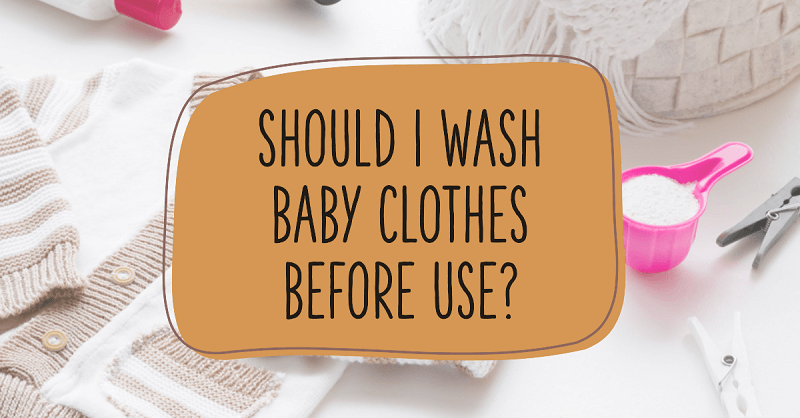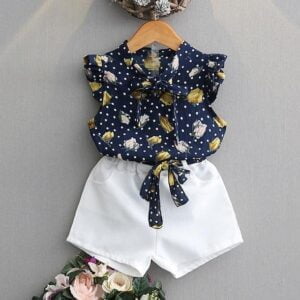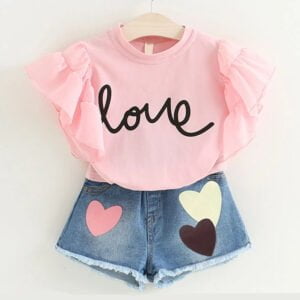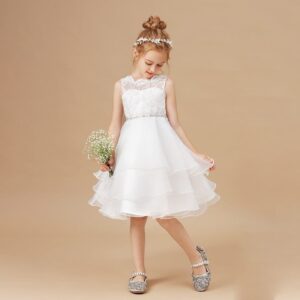When it comes to caring for your precious little one, ensuring their comfort, cleanliness, and safety is of utmost importance. One aspect that often raises questions among parents is whether they should wash baby clothes before using them. In this comprehensive guide, we’ll explore the significance of washing baby clothes before use and provide you with expert advice on how to keep your baby’s wardrobe clean and safe.
On This Page
Addressing Common Concerns of Parents
Before we delve into the details, let’s address some common concerns that parents often have regarding washing baby clothes. Many wonder if it’s really necessary to wash brand-new clothes, assuming they are already clean. Others worry about potential irritants or chemicals present in the fabric or packaging. By understanding these concerns, we can better appreciate the importance of washing baby clothes before your little one wears them.
Why is it important to wash baby clothes?
Removing Chemicals and Irritants
- Explaining Chemical Residue on New Clothes: New clothes, even though they appear clean, may carry chemical residues from the manufacturing process. These residues can include dyes, formaldehyde-based treatments, or finishing agents. Washing the clothes before use helps remove these chemicals, ensuring they don’t come into contact with your baby’s delicate skin.
- Potential Skin Irritants and Allergens: Some babies have sensitive skin that can react to certain fabrics, dyes, or chemicals. Washing baby clothes helps eliminate potential irritants and allergens, reducing the risk of skin rashes or discomfort. It’s especially crucial for babies with eczema or other skin conditions to have their clothes washed before wearing.
- The Importance of Removing Sizing Agents: Sizing agents, such as starches or fabric softeners, are often applied to new clothes to improve their appearance on the shelves. However, these agents can cause skin irritation or allergic reactions in babies. Washing baby clothes removes these sizing agents and ensures that only clean and safe garments come into contact with your little one’s skin.
Ensuring Hygiene and Cleanliness
- Eliminating Dust, Dirt, and Germs: During the manufacturing, packaging, and shipping processes, baby clothes can accumulate dust, dirt, or even germs. Washing the clothes before use helps eliminate these unwanted elements, ensuring that your baby’s clothes are fresh and clean.
- Protecting Against Potential Infections: New clothes can also come into contact with various surfaces and environments before they reach your hands. By washing baby clothes, you reduce the risk of potential infections that may be transmitted through these surfaces. It’s particularly important for newborns, as their immune systems are still developing and need extra protection.
- Maintaining a Healthy Environment for Your Baby: Washing baby clothes is not only about keeping your little one clean but also about maintaining a healthy environment. Clean clothes help prevent the spread of germs and allergens, creating a safe and hygienic space for your baby to grow and explore.
In the next section, we will delve into the best practices for washing baby clothes, providing you with essential tips and techniques to ensure effective and safe cleaning.
Best Practices for Washing Baby Clothes
Sorting and Preparing the Laundry
Before you start washing your baby’s clothes, it’s important to sort and prepare the laundry properly. Follow these steps to ensure efficient and effective cleaning:
- Separating Different Fabrics and Colours: Sort the clothes based on fabric types (e.g., cotton, wool, synthetic) and colours. This helps prevent colour bleeding and ensures that each fabric receives the appropriate care during the washing process.
- Removing Any Tags or Packaging Materials: Check the clothes for any tags, labels, or packaging materials that might be attached. These can be uncomfortable or potentially hazardous for your baby, so make sure to remove them before washing.
- Pre-Treating Stains or Spots: If you notice any stains or spots on the clothes, it’s a good idea to pre-treat them before washing. Follow the instructions on the stain remover product and gently work on the affected areas to increase the chances of successful stain removal.
Choosing Baby-Friendly Detergents
When it comes to washing your baby’s clothes, it’s crucial to select detergents that are safe and gentle on their delicate skin. Consider the following factors when choosing a baby-friendly detergent:
- Understanding the Importance of Mild and Hypoallergenic Detergents: Look for detergents specifically labelled as “mild” or “hypoallergenic.” These formulations are designed to minimise skin irritation and reduce the risk of allergic reactions.
- Avoiding Fragrances and Harsh Chemicals: Fragrances and certain chemicals present in regular detergents can be harsh on your baby’s sensitive skin. Opt for fragrance-free or unscented detergents to minimise potential irritants.
- Reading Labels and Selecting Suitable Options: Take the time to read the labels of different detergents and choose those that explicitly state they are safe for use on baby clothes. Look for certifications or recommendations from reputable organisations or paediatricians.
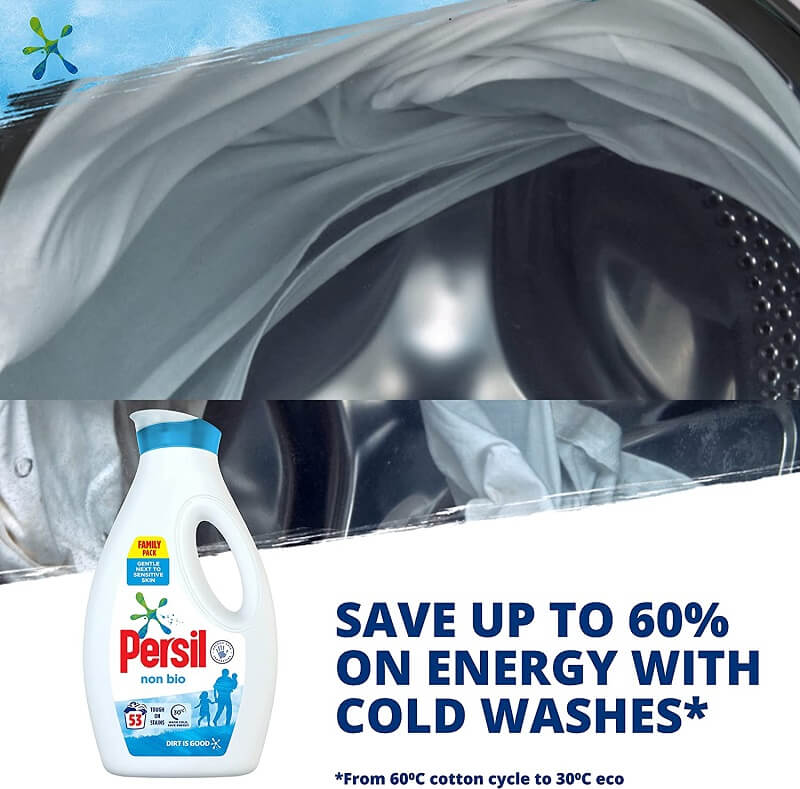
Recommended Washing Techniques
Now that you have sorted your baby’s clothes and chosen a suitable detergent, it’s time to focus on the washing techniques that will keep their garments clean and well-maintained:
- Optimal Water Temperature for Baby Clothes: In general, it’s best to wash baby clothes in lukewarm water, around 30-40 degrees Celsius (86-104 degrees Fahrenheit). This temperature is effective in removing dirt and germs while being gentle on the fabrics.
- Gentle Cycle and Delicate Settings: Most washing machines offer a gentle or delicate cycle option specifically designed for delicate fabrics. Select this setting to minimize the risk of excessive agitation and protect the integrity of the clothes.
- Using Baby-Specific Laundry Bags: To further protect delicate items, consider using laundry bags designed for baby clothes. These mesh bags prevent tangling, snagging, or stretching of garments during the washing process.
In the next section, we will discuss drying and ironing guidelines for baby clothes, as well as additional tips for maintaining their quality and extending their lifespan.
Additional Tips for Maintaining Baby Clothes
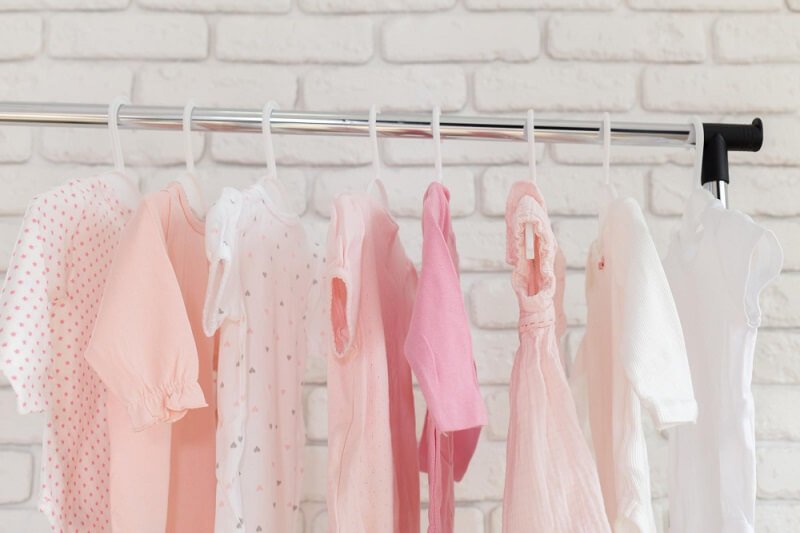
Storage and Organisation
Proper storage and organisation play a vital role in maintaining the quality and longevity of your baby’s clothes. Follow these tips to keep their wardrobe neat and well-preserved:
- Proper Folding and Hanging Techniques: Fold clothes neatly to prevent wrinkles and creases. For delicate items or those prone to stretching, consider hanging them using baby-sized hangers to maintain their shape.
- Using Storage Containers or Drawers: Utilise storage containers or drawers specifically designated for your baby’s clothes. These helps protect the garments from dust, sunlight, and potential damage.
- Protecting Against Pests and Mildew: Place lavender sachets or cedar balls in the storage area to deter pests like moths. Ensure the storage space is clean and dry to prevent mildew or mold growth.
Handling Baby Clothes Gifts
Whether it’s hand-me-downs or gifts from friends and family, receiving baby clothes requires some special considerations to ensure their cleanliness and safety:
- Washing Hand-Me-Downs and Second-Hand Items: Always wash hand-me-downs and second-hand clothes before using them. This removes any dirt, allergens, or lingering scents from the previous owner and ensures a fresh start for your baby.
- Checking for Wear and Tear: Inspect the clothes for signs of wear, loose buttons, or loose threads. Repair or discard items that pose potential hazards, such as small buttons that can be a choking hazard.
- Ensuring Cleanliness and Safety: Treat gifted clothes just like you would treat new clothes. Follow the same washing guidelines and ensure they meet the same hygiene standards before dressing your baby in them.
By following these tips, you can maintain the cleanliness, quality, and safety of your baby’s clothes, ensuring a comfortable and enjoyable wardrobe for your little one.
Frequently Asked Questions (FAQs)
Do I need to wash my washing machine before washing baby clothes?
It’s a good practice to clean your washing machine before washing baby clothes. Run a hot water cycle with no clothes and add a cup of white vinegar or a washing machine cleaner to remove any residues or potential contaminants.
Should you wash toddler clothes before wearing?
Yes, it’s recommended to wash toddler clothes before they are worn. Washing removes any chemicals, dirt, or potential irritants that may have accumulated during manufacturing, transportation, or storage.
Should newborn clothes be washed separately?
It’s advisable to wash newborn clothes separately from other laundry. This helps prevent cross-contamination and ensures optimal hygiene for your newborn’s delicate skin.
Is it better to hand wash or machine wash baby clothes?
Machine washing baby clothes is generally safe and efficient. However, delicate fabrics or items with specific care instructions may require hand washing. Always follow the care labels on the garments to determine the best washing method.
How many times should I wash my baby’s clothes?
There is no set number of times to wash baby clothes. However, it’s recommended to wash them whenever they become soiled or dirty, as well as before the first use to ensure cleanliness.
Do you wash baby clothes on delicate or normal?
It’s best to wash baby clothes on the delicate or gentle cycle of your washing machine. This cycle uses less agitation, reducing the risk of damaging delicate fabrics or embellishments.
Do you need to wash muslins before use?
Yes, it’s advisable to wash muslins before using them. Washing removes any potential manufacturing residues and ensures they are clean and soft for your baby’s use.
Should you use fabric softener on baby clothes?
It’s generally recommended to avoid using fabric softener on baby clothes. Fabric softeners can leave a residue that may be irritating to a baby’s sensitive skin. Instead, focus on using mild detergents that leave clothes soft without the need for additional products.
Should you dry newborn clothes?
It is recommended to air-dry newborn clothes whenever possible. Air-drying helps maintain the integrity of delicate fabrics and reduces the risk of shrinking or damaging the clothes.
What temperature should I wash baby clothes?
Washing baby clothes in lukewarm water, around 30-40 degrees Celsius (86-104 degrees Fahrenheit), is generally suitable. This temperature effectively removes dirt and germs while being gentle on the fabrics.
Why can’t you tumble dry baby clothes?
Tumble drying can potentially shrink or damage baby clothes, especially those made from delicate fabrics. Air-drying or using a low heat setting is preferable to maintain the quality and shape of the garments.
Remember, these answers provide general guidance, but it’s always important to check the care labels and follow the manufacturer’s instructions for specific baby clothes to ensure proper care and maintenance.
In conclusion, the question of whether to wash baby clothes before use is answered with a resounding “yes.” Washing baby clothes before your little one wears them is essential for several reasons. It helps remove chemical residues, potential irritants, and allergens from new clothes. Additionally, washing ensures hygiene and cleanliness by eliminating dust, dirt, and germs that may have accumulated during manufacturing and transportation.
To effectively wash baby clothes, remember to sort and prepare the laundry, choose baby-friendly detergents that are mild and hypoallergenic, and follow recommended washing techniques such as using a gentle cycle and suitable water temperature. Proper storage and organisation of baby clothes also contribute to maintaining their quality and longevity.
By taking these steps, you create a clean, safe, and comfortable wardrobe for your little one, promoting their well-being and reducing the risk of skin irritations or infections. Remember to address any concerns regarding sensitive skin and always prioritise your baby’s comfort and safety.
Now that you have a comprehensive understanding of why washing baby clothes before use is crucial, you can embark on your parenting journey with confidence. Embrace the joy of dressing your baby in fresh, clean clothes, knowing that you are providing them with the best care possible.
We hope this guide has been helpful in answering your questions and providing valuable insights into the importance of washing baby clothes before use. As a parent, you play a significant role in creating a nurturing environment for your little one, and paying attention to their clothing care is an essential part of that journey.
Keep your baby’s wardrobe clean, safe, and filled with love!

